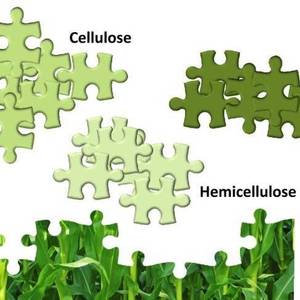ECN develops high-yielding biomass fractionation process




December 11, 2017
BY Energy Research Center of the Netherlands
The Energy Research Center of the Netherlands has developed a novel process to fractionate biomass such as hardwood chips and wheat straw, rendering a high yield of valuable building blocks for biobased products at potentially lower cost and process energy demand.
New technologies are needed for balancing economic growth and its environmental impact by utilizing biomass components to replace petroleum-derived energy carriers and chemicals. “The conversion of biomass to green fuels and building blocks for bio-based products is indispensable for a sustainable and circular economy,” said ECN researcher Arjan Smit.
Advertisement
Advertisement
Lignocellulose is the main structural component of plant cell walls and consists of a complex of cellulose, hemicellulose and lignin. Due to its recalcitrant nature, relatively harsh conditions are applied in conventional processes for the fractionation of lignocellulose, which negatively effects product yield, product quality and process economy.
ECN’s mild fractionation process, Fabiola, has great potential for improving the cost-effective pretreatment of biomass. Fractionation of wheat straw, corn stover and various hardwoods such as poplar, beech and birch resulted in high sugar yields from the (hemi)cellulose. The sugars can be converted to fuels and building blocks for amongst others plastics. The isolated lignin showed remarkable characteristics as compared to lignin obtained by other pretreatment processes. Lignin characterization and its application as feedstock for aromatic polymers and monomers are currently being worked on. In addition to improved product yields and quality, the combination of solvent and process conditions holds potential for a significant reduction of operating cost and energy demand which further improves the economic viability of the process. The research has been published in the scientific journal Green Chemistry.
Advertisement
Advertisement
Cooperation between ECN and Fraunhofer-Center for Chemical-Biotechnological Processes CBP has resulted in first successful scale-up tests in the lignocellulose biorefinery pilot plant.
ECN is currently working towards finalizing process design, techno-economic evaluation and building a consortium to further develop Fabiola toward market implementation.
A parallel technology development aims to increase the biorefinery feedstock flexibility by pre-extraction and fractionation of agricultural and industrial residues such as manure fibers, tomato stems and grasses. Key drivers are increased biomass availability at lower prices and valorization of nutrients towards fertilizers which can significantly improve the economy and sustainability of the Fabiola process.
Related Stories
The U.S. Department of Energy Bioenergy Technologies Office (BETO) announced up to $23 million in funding to support research and development (R&D) of domestic chemicals and fuels from biomass and waste resources.
The U.S. DOE has announced its intent to issue funding to support high-impact research and development (R&D) projects in two priority areas: sustainable propane and renewable chemicals and algal system cultivation and preprocessing.
Sens. Sherrod Brown, D-Ohio, and Pete Ricketts, R-Neb., in August introduced the Renewable Chemicals Act, a bill that aims to create a tax credit to support the production of biobased chemicals.
The Chemical Catalysis for Bioenergy Consortium, a consortium of the U.S. DOE’s Bioenergy Technologies Office, has launched an effort that aims to gather community input on the development of new biomass processing facilities.
USDA on March 8 celebrated the second annual National Biobased Products Day, a celebration to raise public awareness of biobased products, their benefits and their contributions to the U.S. economy and rural communities.
Upcoming Events










